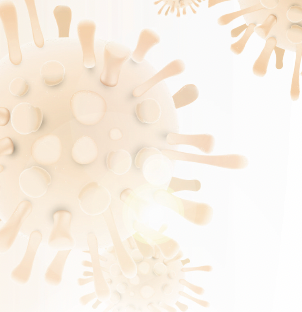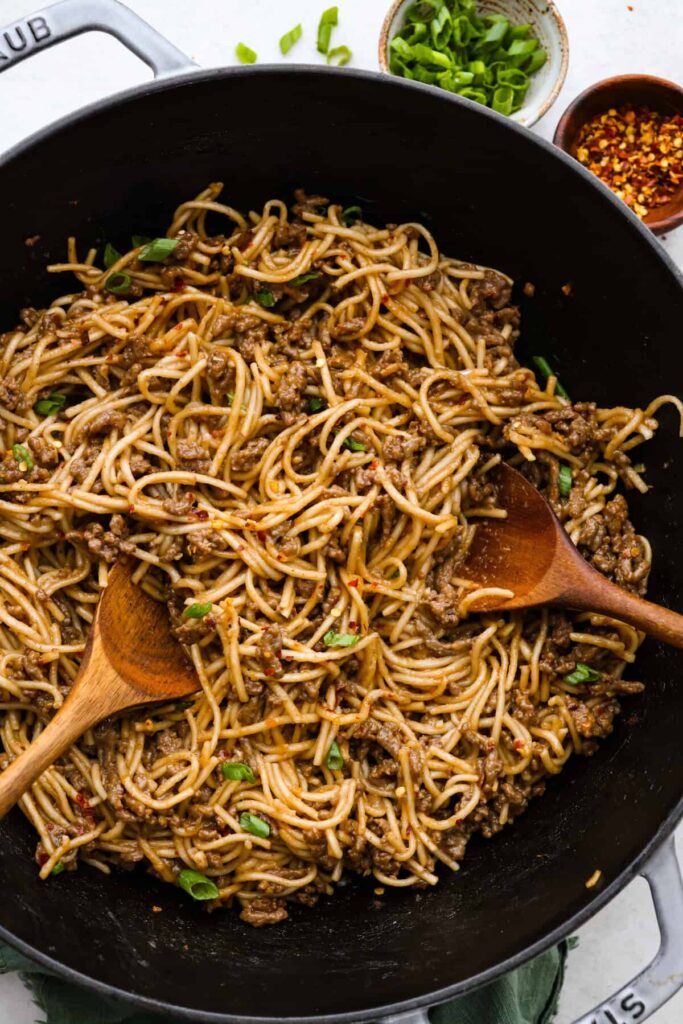Image Credit: Orkidia – stock.adobe.com

COVID-19 and Immunocompromised Individuals
On May 5, 2023, the World Health Organization declared an end to the global health emergency phase of COVID-19, the disease caused by the novel coronavirus SARS-CoV-2.1 The virus is estimated to have infected more than 775 million individuals worldwide and is attributed to more than 7 million deaths.2 The landscape of COVID-19 has shifted throughout the years with the development and identification of pharmacologic agents used for prevention and treatment, as well as with the evolution of new SARS-CoV-2 variants.
The development of effective COVID-19 vaccines was paramount to the pandemic response, protecting against severe disease while helping to reduce new outbreaks of the virus.3 However, patients with compromised immune systems may be unable to receive adequate protection from the latest vaccinations and remain at risk of severe disease, owing to suboptimal antibody response and inadequate levels of SARS-CoV-2 neutralizing antibodies following vaccination.4 This is best illustrated by results of an observational study to assess COVID-19 health outcomes of immunocompromised individuals compared with the general population in the United Kingdom using data from the National Health Service during 2022.5 Of nearly 12 million patients, only 3.9% were classified as immunocompromised, yet this cohort made up 22% of COVID-19 hospitalizations, 28% of COVID-19 intensive care unit admissions, and 24% of COVID-19 related deaths. Patients with more profound immunosuppressive conditions (eg, stem cell transplant within 2 years or solid organ transplant) were at the highest risk for adverse COVID-19 outcomes.
Seropositivity Following COVID-19 Vaccination in Immunocompromised Individuals
Several vaccine response studies have found decreased seropositivity in immunocompromised individuals compared with those without immune compromise. Haider et al conducted a prospective observational study to measure antibody responses and neutralization titers following COVID-19 vaccination in individuals with a range of immunocompromising conditions compared with immunocompetent health care workers (HCWs).6 The study enrolled 1271 participants (1099 immunocompromised and 172 immunocompetent HWCs) from April to July 2021. Seropositivity was lower among those with solid organ transplants (30.7%), hematological malignancies (50.0%), autoimmune conditions (79.1%), solid tumors (78.7%), and HIV (79.8%) compared with immunocompetent HCWs (92.4%) (P < .01 for all). Neutralization titers were also significantly lower in immunocompromised individuals compared with immunocompetent HCWs. Additionally, in a systematic review and meta-analysis, Lee et al compared rates of seroconversion in immunocompromised individuals with those without immune compromise following the first and second doses of the COVID-19 vaccine.7 Seroconversion rates following both COVID-19 vaccine doses were significantly lower in organ transplant recipients and those with solid cancers, hematological cancers, and immune-mediated inflammatory disorders than the immunocompetent controls. Based on decreased rates of seropositivity following COVID-19 vaccination, it has been theorized that certain immunocompromised individuals may benefit from passive immunity through preventive monoclonal antibody infusions.
Monoclonal Antibodies for COVID-19 PrEP
Monoclonal antibodies are synthetic proteins that mimic the immune system’s ability to fight off pathogens such as the SARS-CoV-2 virus. Anti–SARS-CoV-2 monoclonal antibodies have been utilized as prophylactic agents for COVID-19 in individuals with moderate to severe immune compromise.
Tixagevimab/cilgavimab (Evusheld) was the first monoclonal antibody authorized by the US Food and Drug Administration (FDA) for pre-exposure prophylaxis (PrEP) against SARS-CoV-2. Unfortunately, new SARS-CoV-2 variants emerged with reduced neutralizing susceptibility to tixagevimab/ cilgavimab, which led to the withdrawal of the Emergency Use Authorization (EUA) for tixagevimab/cilgavimab.8
In March 2024, the FDA issued an EUA for pemivibart (Pemgarda) for use as PrEP against SARS-CoV-2 in individuals 12 years or older with moderate to severe immune compromise (TABLE).9 Pemivibart is a recombinant human monoclonal antibody that targets the spike protein receptor binding domain of SARS-CoV-2, thus preventing the virus from attaching to host cells. The FDA’s authorization came after the release of data establishing immunobridging for pemivibart, a study end point often used in monoclonal antibody clinical trials. Immunobridging for pemivibart was established by comparing serum antibody titer response at day 28 for variant JN.1 (the predominant variant in circulation at the time) with historical antibody titer data of adintrevimab against the Delta variant. It was determined that serum-neutralizing titers of pemivibart for JN.1 were consistent with those of previously authorized monoclonal antibodies against COVID-19.
In clinical studies, pemivibart was administered as a single 4500-mg intravenous infusion over at least 60 minutes.9 Repeat dosing every 3 months may be performed to ensure serum antibody titers persist at adequate levels. For patients who have been recently vaccinated against COVID-19, pemivibart should be administered at least 2 weeks after vaccination. Like previously authorized monoclonal antibodies for COVID-19, the medication should be administered only in settings where health care providers are accessible and able to treat adverse reactions, including anaphylaxis. It is recommended to monitor patients during and for at least 2 hours following completion of the infusion. In clinical studies, the most commonly reported adverse reactions included upper respiratory tract infection (6%), local infusion site reactions (5%), and systemic infusion-related and hypersensitivity reactions (4%); there were rare reports of anaphylaxis (0.6%).

Current Landscape of COVID-19 PrEP
As mentioned previously, JN.1 was the pre-dominant sublineage at the time of pemivibart’s authorization for use as COVID-19 PrEP. Since then, there has been a continual change in predominant COVID-19 variants and sublineages. The most recent data from the Centers for Disease Control and Prevent-ion’s national SARS-CoV-2 genomic surveil-lance system for the 2 weeks ending August 31, 2024, show predominant circulating JN.1 sublineages to be KP.3.1.1 (42.2%), KP.2.3 (16.4%), KP.3 (14.2%), and LB.1 (13.5%).10 Of note, sublineage KP.3.1.1 continues to spread and is now the predominant SARS-CoV-2 variant circulating in the US.
In recent weeks, at least 2 non–peer-reviewed studies assessing pemivibart’s in vitro neutralizing activity against the current circulating JN.1 sublineages, including JN.1.1, LB.1, KP.2.3, KP.3, KP.3.3, and KP.3.1.1 have been posted online.11,12 The results of these studies have raised questions regarding the effectiveness of pemivibart against select sublineages, most notably KP3.1.1. However, in response to the newly circulating variants, on September 3, 2024, Invivyd, Inc, issued a news release announcing its reference laboratory had confirmed continued neutralizing activity of pemivibart against LB.1 and KP.3.1.1.13 Details on pemivibart’s neutralization activity and 50% effective concentration (EC50) against KP3.1.1, LB.1, and other variants of interest have not yet been released but are likely to appear in an upcoming update to the medication’s prescribing information.
The news release suggested that pemivibart has maintained the ability to produce sufficient virus-neutralizing antibody titers against current circulating variants and remains an option for PrEP for those with moderate to severe immune compromise.
In August 2024, the Infectious Diseases Society of America published a clinical practice guideline update on the use of pemivibart as PrEP for COVID-19.14 The focused update suggests using pemivibart for PrEP in patients with moderate or severe immune compromise when predominant regional variants are susceptible (conditional recommendation with low certainty of evidence). The current EUA authorizes use of pemivibart for PrEP for as long as the combined national frequency of COVID-19 variants with substantially reduced susceptibility is 90% or less. With the recent statement from Invivyd, which suggested pemivibart maintained antibody neutralization activity against the current US predominant variant KP3.1.1, use of pemivibart for patients with moderate to severe immune compromise appears to be a practical option for patients unlikely to achieve protection from COVID-19 vaccines. Ongoing evaluation of pemivibart and its ability to produce sufficient neutralizing antibody titers against future COVID-19 variants will be needed.
Conclusion
Although vaccination remains the first-line prevention against COVID-19, some individuals with profound immunosuppression may not mount an adequate response to vaccination. Anti–SARS-CoV-2 monoclonal antibodies have been developed as prophylactic agents for COVID-19 in individuals with moderate to severe immune compromise. Currently, pemivibart is the only monoclonal antibody agent authorized for PrEP of COVID-19. As new SARS-CoV-2 variants continue to emerge, it is essential to evaluate pemivibart’s effectiveness against new variants.
References
-
Sarker R, Roknuzzaman ASM, Nazmunnahar, Shahriar M, Hossain J, Islam R. The WHO has declared the end of pandemic phase of COVID-19: way to come back in the normal life. Health Sci Rep. 2023;6(9):e1544. doi:10.1002/hsr2.1544
-
WHO COVID-19 dashboard. World Health Organization. 2024. Accessed September 9, 2024 https://covid19.who.int/
-
Moghadas SM, Vilches TN, Zhang K, et al. The impact of vaccination on COVID-19 outbreaks in the United States. Clin Infect Dis. 2021;73(12):2257-2264. doi:10.1093/cid/ciab079
-
Cheung MW, Dayam RM, Shapiro JR, et al. Third and fourth vaccine doses broaden and prolong immunity to SARS-CoV-2 in adult patients with immune-mediated inflammatory diseases. J Immunol. 2023;211(3):351-364. doi:10.4049/jimmunol.2300190
-
Evans RA, Dube S, Lu Y, et al. Impact of COVID-19 on immunocompromised populations during the Omicron era: insights from the observational population-based INFORM study. Lancet Reg Health Eur. 2023;35:100747. doi:10.1016/j.lanepe.2023.100747
-
Haidar G, Agha M, Bilderback A, et al. Prospective evaluation of coronavirus disease 2019 (COVID-19) vaccine responses across a broad spectrum of immunocompromising conditions: the COVID-19 vaccination in the immunocompromised study (COVICS). Clin Infect Dis. 2022;75(1):e630-e644. doi:10.1093/cid/ciac103
-
Lee ARYB, Wong SY, Chai LYA, et al. Efficacy of COVID-19 vaccines in immunocompromised patients: systematic review and meta-analysis. BMJ. 2022;376:e068632. doi:10.1136/bmj-2021-068632
-
Evusheld. Fact sheet for healthcare providers. AstraZeneca. 2023. Accessed September 9, 2024. https://www.fda.gov/media/154701/download
-
Pemgarda. Fact sheet for healthcare providers. Invivyd, Inc. 2024. Accessed September 1, 2024. https://www.fda.gov/media/177067/download
-
Variants & genomic surveillance. Centers for Disease Control and Prevention. Updated September 17, 2024. Accessed September 17. 2024. https://covid.cdc.gov/covid-data-tracker/#variants-genomic-surveillance
-
Planas D, Staropoli I, Planchais C et al. Escape of SARS-CoV-2 variants KP.1.1, LB.1 and KP3.3 from approved monoclonal antibodies. bioRxiv. Published online August 21, 2024. doi:10.1101/2024.08.20.608835
-
Wang Q, Guo Y, Ho J, Ho DD. Pemivibart is less active against recent SARS-CoV-2 JN.1 Sublineages. bioRxiv. Published online August 13, 2024. doi:10.1101/2024.08.12.607496
-
Invivyd announces antiviral activity of VYD222 (pemivibart) against SARS-COV-2 KP.1.1 FLIRT & KP.3 variants. News release. Invivyd. June 14, 2024. Accessed September 4, 2024. https://investors.adagiotx.com/news-releases/news-release-details/invivyd-announces-antiviral-activity-vyd222-pemivibart-against
-
Bhimraj A, Falck-Ytter, Y, Kim AY, et al. Infectious Diseases Society of America Guidelines on the treatment and management of patients with COVID-19. IDSA. Updated August 12, 2024. Accessed September 10, 2024. https://www.idsociety.org/practice-guideline/covid-19-guideline-treatment-and-management/









fkhzou